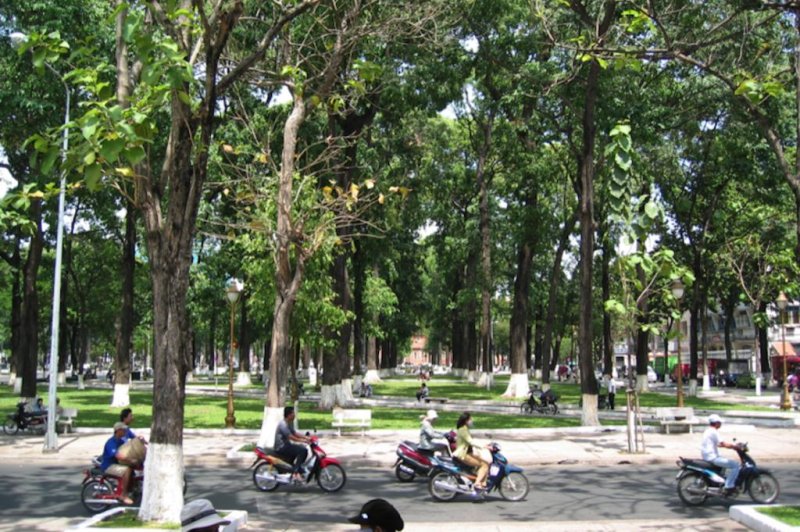Scientists studied heartwood samples from trees in cities around the globe, including trees growing in Hanoi, Vietnam. Photo by TUM
Nov. 13 (UPI) -- Trees in cities around the globe are growing faster than rural trees, according to a new study by researchers at the Technical University of Munich.
The study -- published this week in the journal Nature -- is the first to measure the impact of the heat island effect on urban tree growth.
"While the effects of climate change on tree growth in forests have been extensively studied, there is little information available so far for urban trees," TUM researcher Hans Pretzsch said in a news release.
Studies have shown trees to have a variety of ecological and health benefits, especially for residents of cities. As more of the world's population becomes concentrated in cities, the benefits of urban trees will grow in significance.
Researchers at TUM analyzed heartwood samples from 1,400 trees, including a variety of species, growing in Berlin, Brisbane, Cape Town, Hanoi, Houston, Munich, Paris, Prince George, Santiago de Chile and Sapporo. Trees in rural areas surrounding each city were also sampled for comparison.
"We can show that urban trees of the same age are larger on average than rural trees because urban trees grow faster," Pretzsch said. "While the difference amounts to about a quarter at the age of 50, it is still just under 20 percent at a hundred years of age."
Researchers believe the heat island effect is boosting growth rates of trees in cities. The amount of heat-absorbent materials among buildings and urban infrastructure causes many cities to get between three and ten degrees Celsius warmer during the day than surrounding areas. The warmer temps can encourage photosynthetic activity and lengthen the growing season, allowing city trees to grow faster and get bigger than their rural peers.
The new research also confirmed previous studies that found both urban and rural trees are growing faster -- as a result of global warming -- than they were several decades ago.
"The general acceleration of growth in all trees by about 20 percent, which we report in the current study, is comparable to previous findings on forests. This effect has also been observed in agricultural production," Pretzsch said. "In this context, in addition to global warming, fertilization effects due to the rising atmospheric CO2 concentration and increased nitrogen depositions are discussed as potential driving forces."
While so far tree growth has benefited from global warming, researchers warn that tree growth could reach a limit and plateau, allowing the negative consequences of global warming -- including extreme weather such as drought and large storms -- to catch up.















